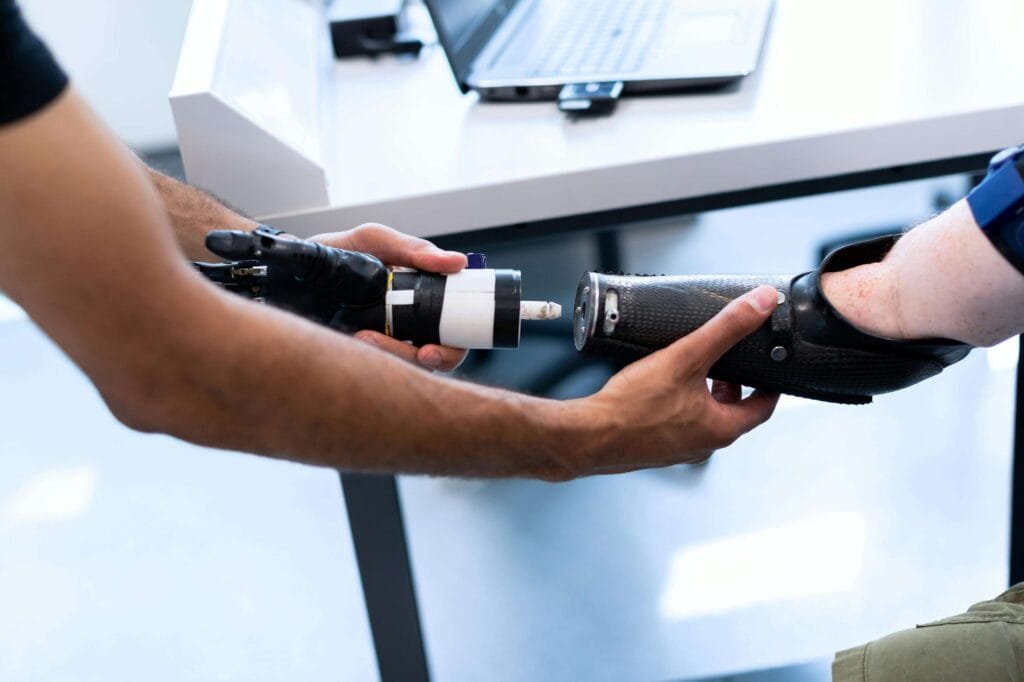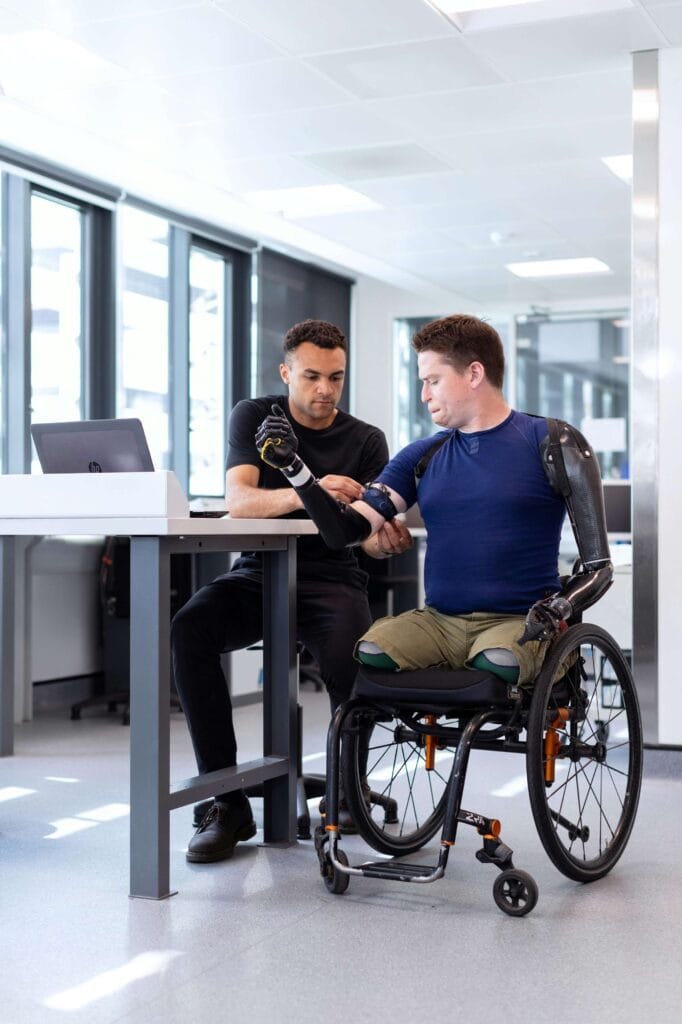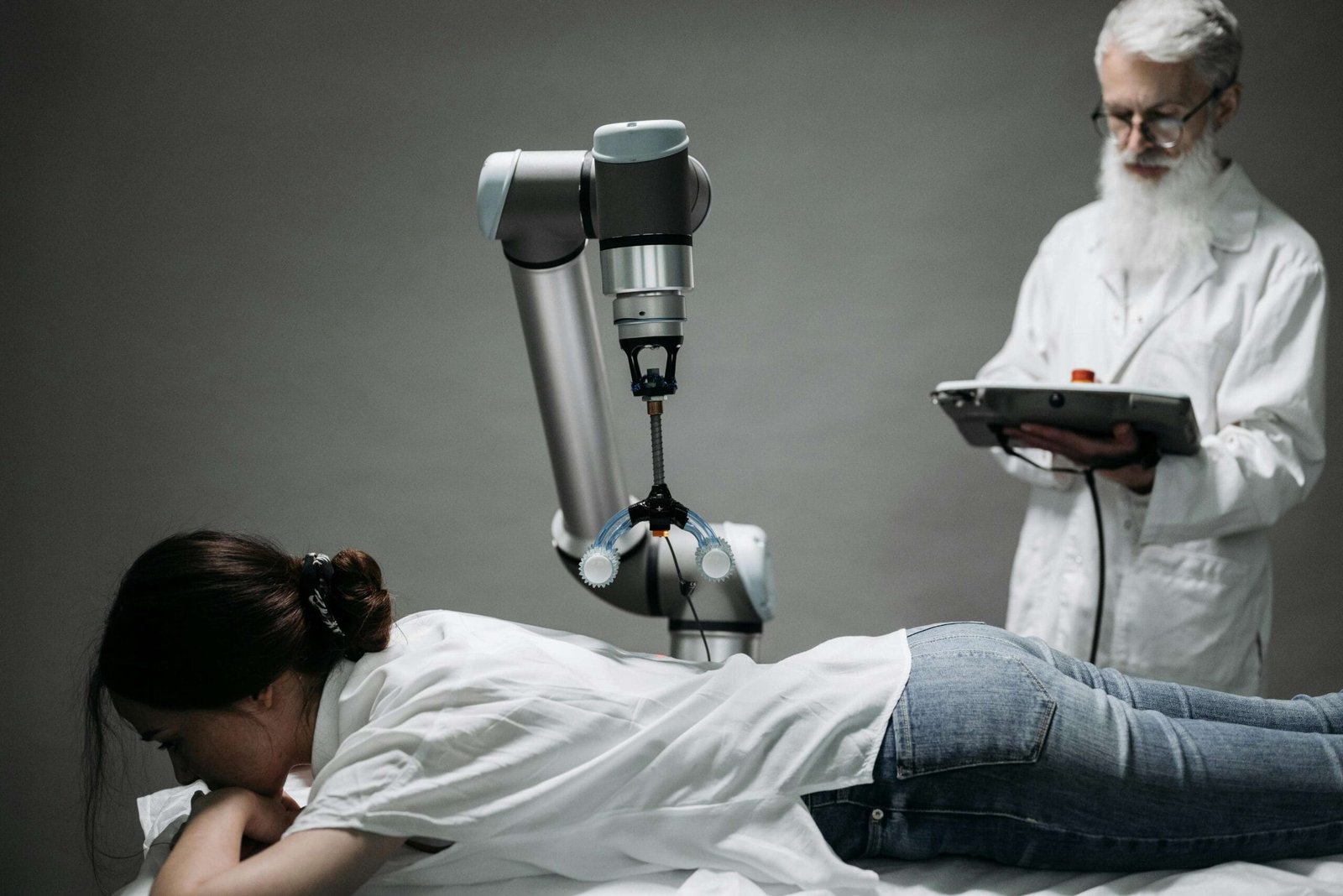Artificial Intelligence (AI) is rapidly transforming industries across the globe, and its impact on the healthcare sector is particularly significant. The integration of AI technologies is not only reshaping how healthcare services are delivered but also profoundly affecting the AI on Healthcare Workforce. This comprehensive article explores how AI is revolutionizing the healthcare workforce, creating new job opportunities, and altering existing roles within the industry.
Table of Contents
Understanding AI’s Role in Healthcare
Artificial Intelligence refers to the simulation of human intelligence in machines designed to perform tasks that typically require human cognitive functions. In healthcare, AI encompasses a range of technologies, including machine learning, deep learning, natural language processing (NLP), and robotics. These technologies are used to enhance diagnostic accuracy, streamline operations, and improve patient outcomes.

Key AI Technologies in Healthcare:
- Machine Learning: Algorithms that learn from data and improve their performance over time without explicit programming.
- Deep Learning: A subset of machine learning that uses neural networks to analyze complex patterns in large datasets, such as medical images.
- Natural Language Processing (NLP): AI technology that understands and processes human language, enabling applications like speech recognition and text analysis.
- Robotics: AI-driven robots assist in surgeries and other medical procedures, providing precision and minimizing human error.
The Transformation of the Healthcare Workforce
The integration of AI into healthcare is significantly impacting the workforce in various ways. Here’s a detailed look at how AI on Healthcare Workforce is evolving:
1. Automation of Routine Tasks
AI’s ability to automate routine and administrative tasks is one of the most immediate impacts on the healthcare workforce. Automation encompasses a range of activities, from data entry to appointment scheduling and billing.
Impact on Workforce:
- Efficiency Gains: Automation enhances operational efficiency by reducing the time and effort required for repetitive tasks. This allows healthcare professionals to focus on more complex and patient-centered activities.
- Job Shifts: While some administrative roles may be reduced due to automation, new opportunities arise in managing and overseeing AI systems, ensuring their effective implementation.
Examples of Automation:
- Electronic Health Records (EHRs): AI-powered tools streamline data entry and management, enhancing the accuracy and efficiency of EHR systems.
- Appointment Scheduling: AI systems automate scheduling, reminders, and follow-ups, improving patient engagement and reducing missed appointments.
Impact on Job Roles:
- Administrative Support: Administrative staff may experience a reduction in routine tasks but will need to adapt to roles that focus on overseeing AI systems and ensuring data accuracy.
- New Roles: New job roles emerge in AI system management, including AI specialists and data analysts, who are responsible for developing, implementing, and maintaining AI technologies.
2. Enhancement of Diagnostic Capabilities
AI technologies, especially deep learning algorithms, are enhancing diagnostic capabilities by providing more accurate and timely diagnoses. AI systems analyze medical images, interpret lab results, and predict disease progression with high precision.
Impact on Workforce:
- Skill Augmentation: Healthcare professionals can leverage AI tools to augment their diagnostic skills, leading to more informed decisions and improved patient outcomes.
- Training Needs: There is an increasing demand for training programs to equip healthcare professionals with the skills required to effectively use AI tools and interpret AI-generated insights.
Examples of Enhanced Diagnostics:
- Medical Imaging: AI assists radiologists in analyzing X-rays, MRIs, and CT scans, identifying abnormalities that may be missed by human eyes.
- Predictive Analytics: AI models analyze patient data to predict disease risk, enabling early intervention and personalized treatment plans.
Impact on Job Roles:
- Radiologists: Radiologists and imaging specialists will increasingly collaborate with AI systems to enhance diagnostic accuracy and efficiency.
- Training and Education: Educational institutions and healthcare organizations are developing training programs to ensure professionals are proficient in using AI tools.
3. Creation of New Job Opportunities
The rise of AI in healthcare is creating a variety of new job opportunities. As AI technologies become more integrated into healthcare systems, there is a growing demand for specialized roles that focus on AI development, implementation, and management.
Impact on Workforce:
- AI Specialists: There is a need for AI specialists who can develop, implement, and maintain AI systems within healthcare settings.
- Data Analysts: Healthcare data analysts play a crucial role in interpreting the data generated by AI systems and providing actionable insights.
Examples of New Job Opportunities:
- AI Developers: Professionals with expertise in AI algorithms and machine learning are needed to create and refine healthcare AI technologies.
- Health Informatics Specialists: These specialists manage and analyze healthcare data, ensuring the effective and ethical use of AI systems.
Impact on Job Roles:
- AI System Management: New roles emerge in managing and overseeing AI systems, including positions in AI development, implementation, and maintenance.
- Data Analysis and Interpretation: Increased demand for data analysts who can interpret complex data sets and provide insights that inform clinical decisions.
4. Transformation of Clinical Roles

AI’s integration into healthcare is transforming clinical roles by providing decision support and augmenting clinical workflows. AI tools assist healthcare professionals in making more accurate diagnoses, developing treatment plans, and managing patient care.
Impact on Workforce:
- Role Evolution: Clinical roles are evolving to incorporate AI tools, requiring professionals to adapt to new workflows and utilize AI-generated insights in their practice.
- Enhanced Collaboration: AI fosters greater collaboration between healthcare providers and technology experts, leading to more integrated and patient-centered care.
Examples of Clinical Transformation:
- Clinical Decision Support: AI systems offer evidence-based recommendations and identify potential treatment options, supporting clinicians in their decision-making processes.
- Robotic Surgery: AI-driven robotic systems assist surgeons in performing precise and minimally invasive procedures, enhancing surgical outcomes.
Impact on Job Roles:
- Surgeons and Clinicians: Surgeons and clinicians will increasingly work alongside AI systems to improve precision and outcomes in surgical and diagnostic procedures.
- Interdisciplinary Collaboration: Greater emphasis on interdisciplinary collaboration between healthcare professionals, data scientists, and AI specialists.
Benefits of AI on Healthcare Workforce
The integration of AI into healthcare brings several benefits to the workforce, including:
1. Increased Efficiency
AI enhances the efficiency of healthcare operations by automating routine tasks and streamlining workflows. This increased efficiency allows healthcare professionals to focus on more complex and value-added activities.
Examples:
- Streamlined Operations: Automation of administrative tasks reduces the time spent on paperwork, improving overall operational efficiency.
- Enhanced Productivity: AI tools provide timely and accurate information, supporting faster decision-making and reducing delays in patient care.
2. Improved Patient Care
AI supports improved patient care by providing accurate diagnostics, personalized treatment plans, and continuous monitoring. Enhanced care leads to better patient outcomes and satisfaction.
Examples:
- Personalized Treatment: AI enables personalized treatment plans based on individual patient data, increasing the effectiveness of therapies.
- Continuous Monitoring: AI systems facilitate real-time monitoring of chronic conditions, allowing for timely interventions and adjustments to treatment plans.
3. Professional Development
The adoption of AI in healthcare necessitates ongoing professional development and training. Healthcare professionals have the opportunity to acquire new skills and expertise in AI technologies and their applications.
Examples:
- Upskilling: Training programs are designed to equip healthcare professionals with the skills needed to effectively use AI tools and interpret data.
- Career Advancement: Opportunities for specialization in AI and health informatics offer career advancement and growth potential within the healthcare sector.
Challenges and Considerations
While the impact of AI on the healthcare workforce is largely positive, there are several challenges and considerations to address:
1. Ethical and Regulatory Issues
The integration of AI in healthcare raises ethical and regulatory concerns related to data privacy, algorithmic bias, and the transparency of AI systems.
Considerations:
- Data Privacy: Ensuring the protection of patient data and compliance with regulations such as HIPAA and GDPR is crucial for maintaining trust and confidentiality.
- Bias and Fairness: Addressing algorithmic bias to ensure that AI systems provide equitable healthcare outcomes for all patients is essential for fairness and accuracy.
2. Workforce Displacement
The automation of certain tasks may lead to workforce displacement, particularly in administrative and routine roles. However, the creation of new job opportunities in AI-related fields can offset some of these effects.
Considerations:
- Reskilling: Providing reskilling and upskilling opportunities for displaced workers to transition into new roles is important for workforce stability.
- Job Creation: Focusing on creating new job opportunities in AI development, data analysis, and health informatics can help mitigate the effects of displacement.
3. Integration Challenges
Integrating AI technologies into existing healthcare systems and workflows can be complex and may require significant resources and planning.
Considerations:
- Interoperability: Developing AI systems that are compatible with existing EHRs and healthcare technologies is crucial for seamless integration and effective utilization.
- Training and Support: Providing adequate training and support for healthcare professionals to effectively use AI tools and adapt to new workflows is essential for successful implementation.
4. Maintaining Human Oversight
While AI can enhance diagnostic and operational capabilities, it is important to maintain human oversight to ensure accurate and ethical decision-making.
Considerations:
- Human-AI Collaboration: Fostering collaboration between AI systems and healthcare professionals ensures that AI tools support rather than replace human expertise.
- Clinical Judgment: Emphasizing the importance of clinical judgment and decision-making in conjunction with AI-generated insights is crucial for effective patient care.
The Future of AI on Healthcare Workforce
The future of AI on Healthcare Workforce holds exciting possibilities as AI technologies continue to advance and reshape
the healthcare industry. Key trends to watch include:
1. AI-Powered Collaboration
AI will foster greater collaboration between healthcare professionals, technology developers, and data scientists, leading to more integrated and effective healthcare solutions.
Future Directions:
- Collaborative Platforms: Development of collaborative platforms that integrate AI tools with clinical workflows and decision-making processes to enhance patient care.
- Interdisciplinary Teams: Formation of interdisciplinary teams that combine expertise in healthcare, AI, and data science to drive innovation and address complex challenges.
2. Expansion of AI Applications
AI applications in healthcare will continue to expand, leading to new roles and opportunities within the industry. The evolution of AI technologies will drive the development of innovative solutions and services.
Future Directions:
- Innovative Solutions: AI will drive the creation of new healthcare solutions, including advanced diagnostic tools, personalized treatment approaches, and enhanced patient management systems.
- Global Reach: AI technologies will become increasingly accessible, expanding their impact on healthcare systems worldwide and addressing healthcare challenges in diverse settings.
3. Emphasis on Human-AI Collaboration
The focus will shift towards enhancing human-AI collaboration, where AI tools support and augment the skills and expertise of healthcare professionals.
Future Directions:
- Enhanced Training: Development of training programs that emphasize effective collaboration between humans and AI systems, ensuring that professionals can leverage AI tools while maintaining their critical judgment.
- Augmented Practice: AI will augment healthcare practices by providing actionable insights and supporting decision-making processes, allowing professionals to deliver more effective and personalized care.
Conclusion
The impact of AI on Healthcare Workforce is profound and multifaceted, reshaping how healthcare professionals work, creating new job opportunities, and enhancing patient care. As AI technologies continue to evolve, they will play an increasingly critical role in transforming the healthcare industry, driving innovation, efficiency, and improved outcomes.
Embracing the opportunities presented by AI and addressing the associated challenges will be key to maximizing its benefits for the healthcare workforce. By fostering collaboration, investing in professional development, and ensuring ethical and regulatory considerations are met, the healthcare workforce can navigate the transformative impact of AI and thrive in a rapidly evolving landscape.
The future of AI in healthcare promises to bring about significant advancements and improvements, making healthcare more precise, efficient, and accessible for patients around the world. As AI continues to advance, it will be essential for healthcare professionals and organizations to adapt, embrace new technologies, and harness the power of AI to enhance the quality and effectiveness of care.
Visit our blog page for more in-depth and informative articles.
Visit alphanewsweb.com for up to date and exclusive news stories!




